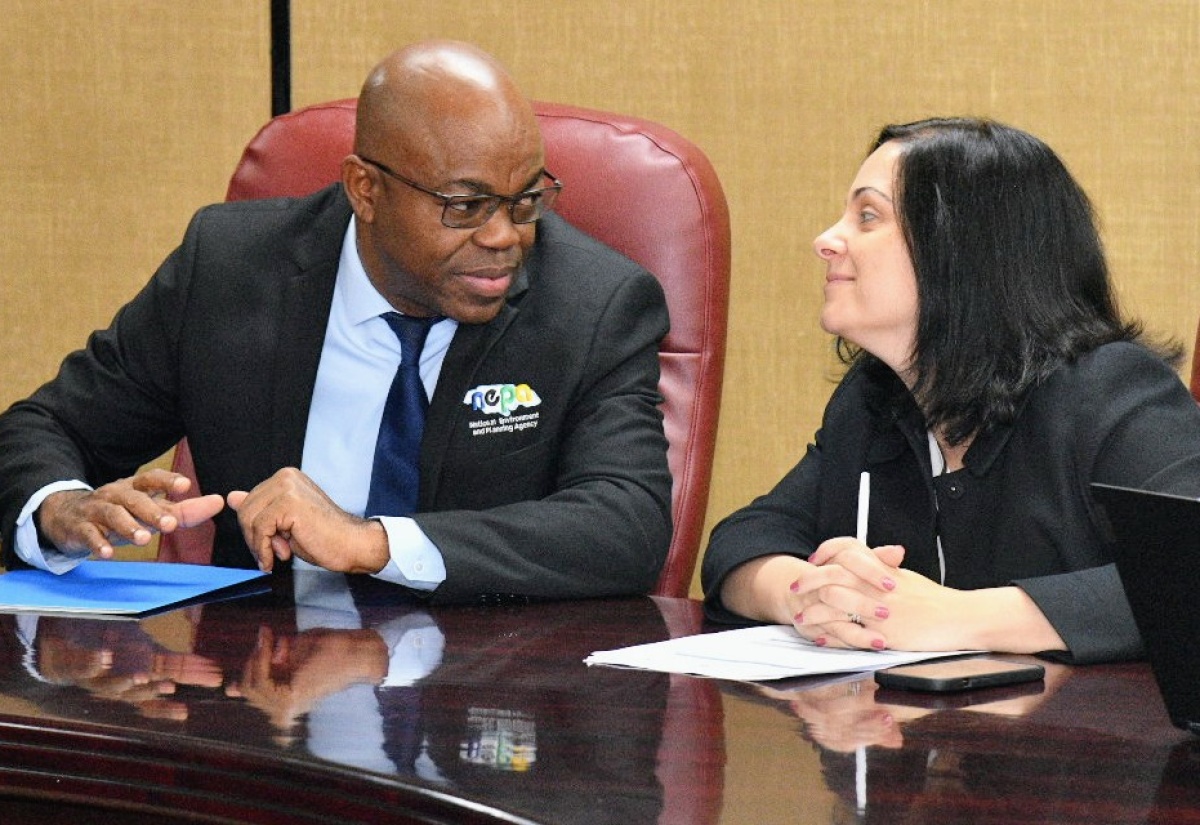Jamaica Making Transition to Circular Economy
By: , August 19, 2025The Full Story
The National Environment and Planning Agency (NEPA) is calling for increased partnership and buy-in from businesses and citizens as Jamaica actively works towards becoming a circular economy.
Chief Executive Officer/Government Town Planner at NEPA, Leonard Francis, said that the model, which focuses on safeguarding the environment through reusing, repairing, and recycling, slowing down the use of natural resources, has the potential to unlock tremendous economic, environmental and societal benefits for the country.
“With a circular economy, the environment is better protected through the minimisation of waste and pollution and we use our natural resources more efficiently. It means that we intentionally recover, reuse, recycle, and repurpose materials so that our consumption of resources and materials is circular rather than linear,” he explained.
“Consequently, Jamaica’s precious and limited resources are kept within the economy for a longer period, instead of being discarded, and our reliance on virgin materials is minimised,” he said further.
Mr. Francis was addressing the opening of a national training workshop on Circular Economy Indicators for the Sustainable Development Goals (SDGs) at NEPA’s corporate offices in Kingston on July 7.
He said that Jamaica has taken some meaningful steps towards transitioning to a circular economy in recent years, through initiatives such as the reduction in the use of single-use plastics.
“The ban on single-use plastic lunch boxes, which is the fourth phase of the process, is now fully in effect, and we are looking ahead to the implementation of the next step where the importation and use of personal care products that contain microplastics will be banned,” he noted.
The ban, which is intended to reduce plastic production, consumption and waste, addresses the negative environmental impact of single-use plastics, particularly their contribution to pollution and the clogging of drainage systems.
The phased implementation started in 2019, targeting the importation, manufacturing, and distribution of single-use plastic bags, drinking straws, and expanded polystyrene foam food containers, and expanded to restrictions to other single-use plastic items.
Mr. Francis said that one of the important benefits of the circular economy model, which he dubbed “the next big step” in environmental management and protection, is its ability to help the country address the problem of climate change.
“This is because a circular economy will lead to a decrease in greenhouse gas emissions as energy consumption is reduced through less frequent resource extraction and manufacturing, and reduced waste and landfill emissions,” he pointed out.
Mr. Francis said the formulation of partnerships and synergies are critical elements for the creation and maintenance of a circular economy.
He cited the introduction of the Green Business Jamaica programme by NEPA in 2022 as an important step, noting that, to date, 11 businesses have chosen to “go green”.
“The initiative is designed to promote environmental stewardship and sustainability across diverse sectors of the Jamaican economy. As such, businesses are guided on how to properly manage their waste, use resources more efficiently, and minimise the impact of their activities on the environment. Our hope is that we can have more companies partnering with us on this initiative, especially as it can positively impact their bottom line by encouraging optimal use of resources,” Mr. Francis pointed out.
He cited the opening of seven Refrigerant Recovery, Recycling & Reclamation (RRR&R) centres in four parishes, on April 30, 2025, as another example of the value of partnership in creating a circular economy.
The initiative involved support from the HEART/NSTA Trust, Caribbean Maritime University (CMU), University of Technology (UTech), and air quality company CAC 2000.
“These centres target ozone-depleting refrigerants with the goal of phasing them out by 2030, in accordance with the Montreal Protocol. By recovering refrigerants like hydrochlorofluorocarbons (HCFCs), the RRR&R programme not only protects the ozone layer but also curbs greenhouse gas emissions,” Mr. Francis pointed out.
The national training workshop, which was held over six days, involved collaboration with the United Nations Environment Programme (UNEP) and the Statistical Institute of Jamaica (STATIN).
It forms part of ongoing efforts to strengthen national capacity in support of Jamaica’s transition to a circular economy.



